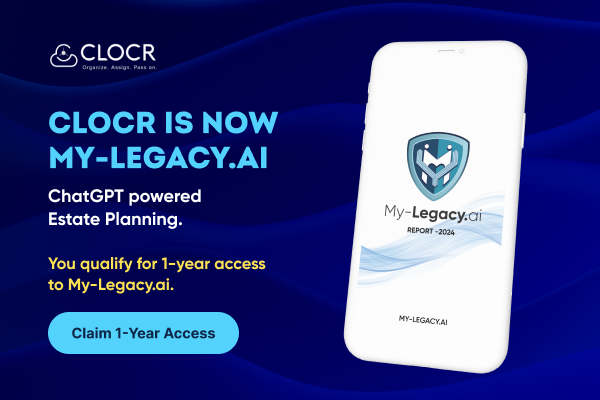Family and personal documents get lost in large numbers every year. It’s only essential that people develop healthy habits of storing family documents. For example, in the US, 300 000 passports are lost or stolen each year.
The situation is no different in Malaysia where More than 80,000 passports were reported lost in 2018. Identity theft costs the economy of Canada approximately $2 billion each year.
These figures are just an example to show the amount of loss a country can incur because of lost family documents. Among other documents that are commonly reported lost are:
- Birth, marriage, divorce, and death certificates
- Driver’s license and car registration
- Social security cards
- Military service records
- Green card
- Medicare cards
- Tax returns
- School transcripts
- Insurance documents
- Tenancy agreement
The process of replacing most of these documents doesn’t come easy or cheap. State offices don’t operate over the weekend or during public holidays. This means that if the replacement is required urgently, one would have to wait until the next business day.
Storing Important Family Documents
So where should people store their vital family documents?
A safe deposit box at a bank is a good option. However, accessing them may not be immediate. The other alternative is to store them in a secure box at home.
It should be fireproof to prevent the documents from damage in case of a fire outbreak. It also should be stored in waterproof cabinets.
On top of the list of the available options is preserving family documents online. This option minimizes the risk of physical damage to your documents as well as their loss.
Advantages of Storing Family Documents Online
It’s a lot easier to store family documents on an e-vault or free cloud storage. Storing family documents online provides quick access to family members. It eliminates the challenge that comes with trying to locate manually stored documents.
Vital family documents that can benefit from online storage include
- Estate planning documents
- Financial and legal documents
- Personal information
- Online accounts
- Family photos
- Videos and recordings
Online storage especially comes in handy after the death of the head of the family. Organizing the documents online can help family members get through the probate process with much ease. They also can apply and claim for benefits and finalize income taxes.
Preserving family documents online also minimizes the risk of identity theft. If they are stored in secure e-vaults with secure passwords, they remain safely stored away. The physical copies can remain in a safe bank deposit box without the need to withdraw them.
Online transactions that require the use of the documents won’t require their physical handling. Storing them online reduces the need for the owner to always carry copies in their bags, everywhere they go.
What Are The Online Options Available?
Today there are many options when it comes to preserving family documents online. One of the notable ones (for obvious reasons) is the Clocr private e-locker service. Services like Clocr help users create, organize, and share vital financial, legal, and health information in one place.
Some documents one can create and store online include life insurance, will, online account info, and health insurance. All information becomes encrypted and is securely stored in online vaults. The document owner can control who gets access to the information and when.
Other options include using Dropbox or Google Drive. However, these are prone to hacking and might be hard to access in case of an emergency. People are hence better off using a paid service like Clocr, which guarantees them of the safety of their documents.
Safety Measures
The government has put in place measures to ensure documents stored digitally are safe and secure. For example, once a user logs out of their DigiLocket account, the OTP they used to unlock is immediately deleted.
Users can further enhance the safety of their documents by backing them up. This is possible by following three simple steps. This is what experts refer to as the 3-2-1 rule and entails making three copies, storing them on two different media, with one copy in a physical location.
For the most uncomplicated storage process of the duplicate copies, it’s ideal to use professional cloud storage backup. Professional services store the files in multiple locations, making the extra copies available in case of an emergency.
They also use enterprise-strength security approaches to protect the documents.
How to Digitize Family Documents
Before string family documents online, they need to be converted into a digital format. A few main ways for digitalizing documents are available. There are those documents that can be created online, and all there is to do is save them electronically.
For documents that come in a physical format, the primary option in digitalizing them is to use a scanner. According to the National Archives, there’s a standard guide to scanning documents without damaging them. The National Archive also gives an introduction to standard file formats people can use to store their videos, still images, and audio files.
After uploading family documents in the digital lockers, it’s crucial to take into consideration identity theft. This means that the passwords used on these accounts should be strong and hard to guess. If the passwords land in the wrong hands, the documents can be downloaded and used for illegal purposes.
Take Away
Loss of family documents can lead to costly identity theft repercussions to the economy and bring devastation to family members in case of an emergency.
People can save themselves and their families from the agony of lost documents. They can have them stored in a safe deposit either in the bank or at home. However, a more reliable option is to store family documents online.
Today, there are many services available that offer safe online storage of documents. The government has also made strides in making this possible. For more help with preserving family documents online, check out Clocr.com.



